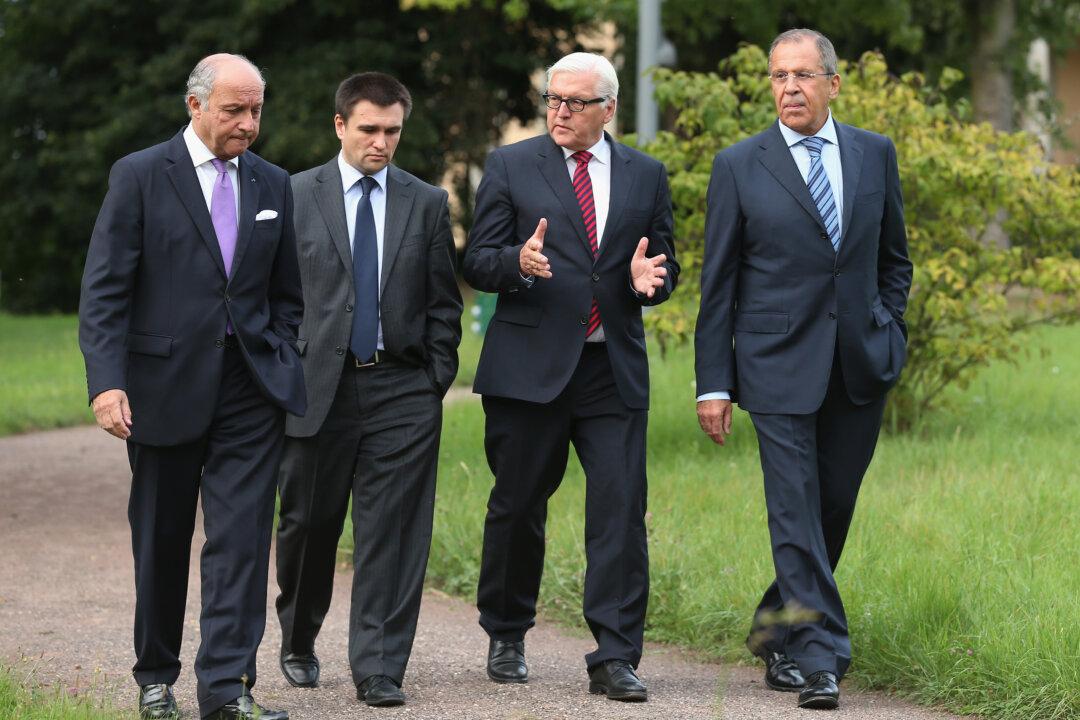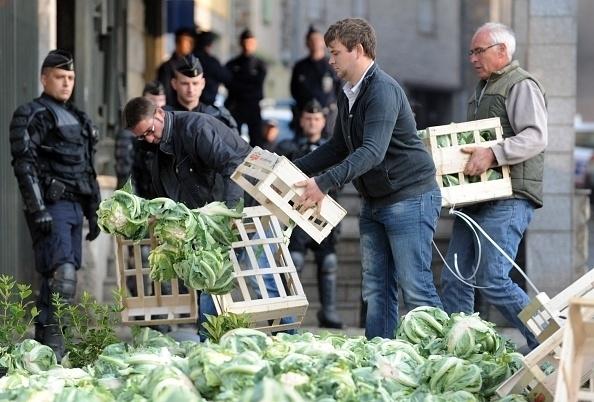PARIS—The recent events in Ukraine have led the European Union and the United States to impose economical sanctions on Russia. Deemed necessary by the French President François Hollande, these sanctions are meant as a strong signal to the Kremlin. The more military convoys Russia sends to Ukraine the more economical penalties will be imposed on the country.
France has already put conditions on the delivery of the Mistral battleship “Vladivostok”. Non-delivery of the vessel will cause an untenable loss for the French economy and employment. Still, French allies say this measure is necessary.
Russia responded with an embargo on European products, especially on French vegetables, which caused many producers to worry.
A Frozen Summer
The impressive Ukrainian protests, the ousting of President Viktor Yanukovych, and his immediate exile to Russia have exposed Russian geopolitical interests. The annexation of Crimea through a barely disguised coup was predictable because of its strategic position in the Black Sea with the presence of one of the main military harbors in the city of Sebastopol. Crimea also represents a decisive region for the extension of the European Union and North Atlantic Treaty Organisation (NATO). With these two getting closer to Ukraine, Russian’s position would feel much weaker.
The Russian maneuvers already seem inspired by the Cold War. But it is the improbable crash of the civil flight MH17, suspected to have been shot down by pro-Russian separatist factions, that has triggered the massive sanctions from the United States and Europe in several sectors: economical sanctions forbidding trade in Russian shares, military sanctions forbidding the importation and sale of weapons from Russia, and technological and other sanctions that will control the access to facilities linked to energy. These measures aim at compromising the stability of the Russian market. But French companies fear the worst: Renault makes 10% of its sales in Russia, the French oil group CGG makes 15% of its benefits on the Russian market. Moreover, the uncertain delivery of a second Mistral ship has jeopardized around 1000 jobs in France.
A Tepid Embargo
The announcement on August 6 of the Russian embargo in response to the sanctions has troubled French fruit and vegetable exporters. Xavier Beulin, chairman of the French Federation of Unions of Agricultural Producers, estimated the loss at around €500 millions. Russian news press agency Ria Novosti foresaw a political and economical nightmare for the European Union. The European Union official Vyugaudas Usackas has estimated the global loss linked to the Russian embargo at around €12 billion.
Still, Forbes magazine added that the agricultural sector only represents 0.01% of the European GDP and the measures will only have limited effects on certain products. Stéphane le Foll, French Minister of Agriculture, said the blocked exports from France to Russia will amount to €1.1 billion. François Hollande has already planned a compensation plan for producers. €125 million has been released for European fruit and vegetable producers.
Finally, the Russian ban doesn’t apply to wines and liquors that are 40% of French exports. Russia imports 35% of its food, meaning Russia might not be able to sustain the embargo to its proposed full year.


